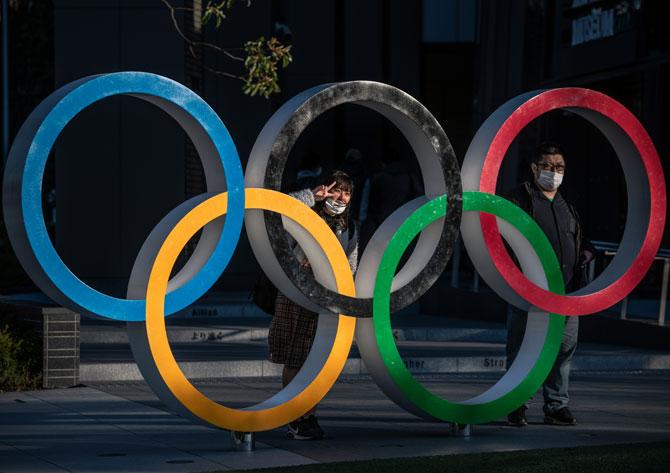
Japan's government will decide whether to let overseas spectators attend the Summer Olympics in Tokyo by the end of March, Olympics Minister Tamayo Marukawa said on Wednesday.
Her comments were echoed by the head of the organising committee for the Games, Seiko Hashimoto, who said she would like to reach the decision by March 25.
Polls show most Japanese oppose holding the Games during the COVID-19 pandemic.
The Mainichi newspaper earlier reported that the government was planning to ban overseas spectators due to worries they would spread the coronavirus, citing multiple unnamed sources.
"On the matter of overseas spectators ... I personally want to have it decided by the 25th of this month, when the Olympic torch relay will be kicked off," Hashimoto told reporters after a virtual meeting with International Olympic Committee (IOC) President Thomas Bach and others.
"It is true that the situation is tough both in and outside Japan ... It would not be good if their entry stirred worry among the Japanese people."
A Yomiuri newspaper poll showed on Wednesday that, if the Games are to go ahead as scheduled, 91% of people in Japan want spectators kept to a minimum or not allowed at all.
The poll -- conducted between January 18 and February 25 -- showed 70% of respondents said they were "interested in the Olympics", but 58% said they did not want them to be held this year because of fears over COVID-19.
The 58% in opposition was, however, about 20 percentage points lower than earlier opinion polls.
The Tokyo Olympic Games were postponed last year because of the pandemic and rescheduled to take place this year from July 23.
A survey by global consultancy Kekst CNC published on Wednesday showed similar rates of majority opposition to the Games going ahead in Japan, at 56%, as well as in Britain and Germany, at 55% and 52% respectively.
In France and Sweden, more people opposed than approved, while in the United States, respondents were split at one-third between those who agreed and disagreed that the Games should go ahead, according to the survey.
While coronavirus infection numbers are low in Japan compared with the United States and many European countries, the greater Tokyo metropolitan area remains in a state of emergency, with restrictions in place for spectator numbers for big sporting and cultural events, as well as closing times for bars and restaurants. The country remains closed to non-resident foreigners.
Prime Minister Yoshihide Suga said on Wednesday the government was considering a two-week extension of a state of emergency in the Tokyo area due to the pressure on the medical system.
A Reuters poll published last month showed nearly two-thirds of Japanese companies also oppose holding the Games as planned, swinging from the previous survey showing most in favour.
Japan has so far confirmed 431,250 coronavirus cases and 7,931 deaths as of Monday.













 © 2025
© 2025